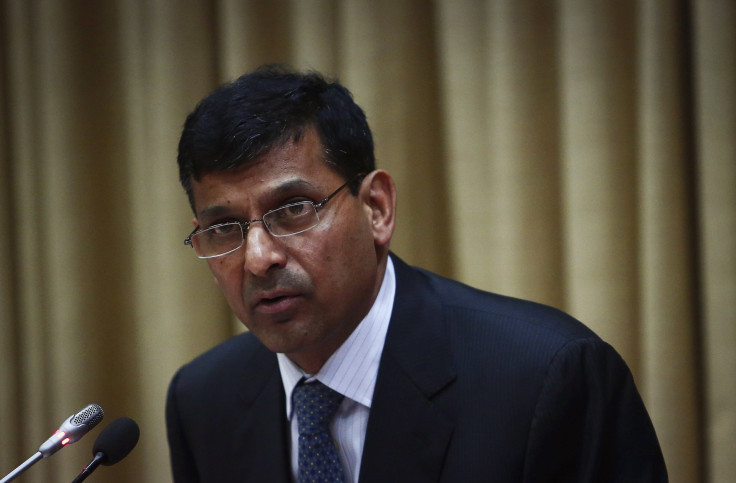Raghuram Rajan Takes Over As India’s Central Bank Governor; Impetus Toward Freeing Up Financial Markets, Banking Sector

Raghuram Rajan, who took charge as the governor of the Reserve Bank of India, or RBI, on Wednesday, outlined measures to facilitate greater autonomy in the country's banking sector and financial markets, and to work toward the internationalization of the rupee.
The broad policy brushstrokes painted by the former chief economist of the International Monetary Fund, in a press conference on Wednesday, appeared to be in line with his views on free markets, and come at a time when India is struggling with its slowest growth in a decade, a soaring current account deficit and inflation, and a crashing rupee.
“These are not easy times, and the economy faces challenges. At the same time, India is a fundamentally sound economy with a bright future,” Rajan said.
Inflation, Rupee
The new RBI chief observed that the central bank’s primary role is to strengthen monetary stability and to sustain confidence in the value of the country’s currency -- goals that, he said, require low and stable inflation, regardless of the reason behind inflationary pressures.
The wholesale price index, India’s main benchmark to gauge inflation, accelerated to a five-month high of 5.79 percent in July, higher than the RBI's comfort level of 5 percent and above economists' forecasts, which had predicted inflation to rise at the rate of 5 percent.
Rising inflation has worsened the fall of the rupee -- 18 percent against the dollar since the beginning of 2013 -- and prompted the RBI to shelve its growth-oriented monetary policy goals and, instead, forced it to tighten liquidity in the country's financial system.
But, despite the rupee’s free fall in recent weeks, Rajan said the internationalization of the rupee needs to be discussed.
“As our trade expands, we will push for more settlement in rupees. This will also mean that we will have to open up our financial markets more for those who receive rupees to invest it back in. We intend to continue the path of steady liberalization," he said.
Rajan also announced that the RBI would open a swap window, which holds deposits in dollars, thus helping depositors avoid exchange-rate risks, and is aimed at attracting dollar deposits from non-resident Indians, or NRIs. Also, in its aim to shore up the rupee's strength, the RBI has allowed banks to borrow overseas an additional 50 percent of their net worth and swap that with the RBI at a rate that is 100 basis points lower than the current swap rate in the market.
According to Morgan Stanley, a systematic reduction in funding risks requires the current account deficit to narrow to 2.5 percent and consumer price inflation to decelerate to 7 percent or lower.
“In order to manage the near term funding risks, we have been highlighting the need to augment capital flows through a special scheme of NRI dollar deposit (with the government bearing part of the FX risks) which can raise about US$ 20bn,” Morgan Stanley said, in a research note. “Today’s measures announced by RBI are somewhat similar in nature and can help augment capital inflows and cushion the funding pressures to some extent in the near term.”
Banking Sector, Financial Markets
Rajan announced that the central bank would soon issue a circular allowing greater autonomy for well-run domestic and foreign banks.
“The Indian public would benefit from more competition between banks, and banks would benefit from more freedom in decision making,” Rajan said.
He added that banks would still be required to focus some of their businesses on underserved areas to bring a wider section of the population into the banking and financial services net, and warned that poorly-managed banks would face restraints.
Rajan also promised that the central bank will ease the process of issuing new banking licenses and also consider converting large urban cooperative banks into commercial banks. And, he emphasized the RBI's responsibility to ensure that banks loaned money to productive sectors even if that meant reducing the requirement for banks to be invested in government securities.
Speaking about freeing India’s financial markets, Rajan said: “For our financial markets to play their necessary roles of providing risk absorbing long term finance, and of generating information about investment opportunities, they have to have depth."
“We cannot create depth by banning position taking, or mandating trading based only on well-defined “legitimate” needs … Better that investors take positions domestically and provide depth and profits to our economy than they take our markets to foreign shores,” he said.
India’s stock market responded well to Rajan’s comments and, on Thursday afternoon, the benchmark BSE Sensex gained 1.9 percent. The rupee remained volatile, gaining 2.3 percent to 65.53, well off the record low of 68.85 it hit on Aug. 28, before falling yet again, as of Thursday afternoon, to trade at 66.28 against the dollar.
© Copyright IBTimes 2024. All rights reserved.






















